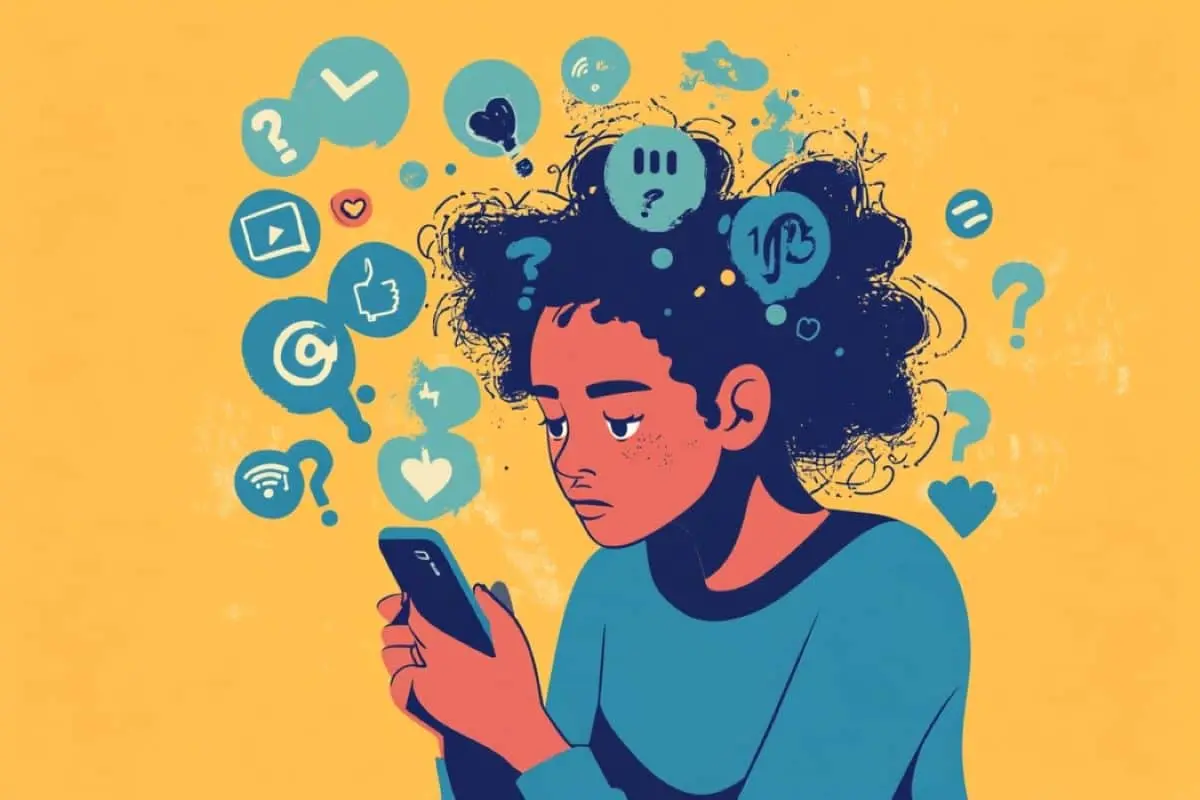A new survey reveals that 25% of adults in the U.S. suspect they may have undiagnosed ADHD, though only 13% have consulted a doctor.
I am fully expecting that the vast majority of people are neurodivergent in some way, meaning ‘neurotypical’ is actually not typical and most people are coping. Or maybe our expectations for ‘normal’ are a bit too high.
I fully expect that the vast majority of people are neurotypical and what we call neurodivergent is just what coping looks like under the batshit insane societal structures we’ve inherited.
I think you’re both right (except maybe the vast majority part).
I think it’s your last sentence. I’ve never actually met a completely “normal” person who was able to actually keep up with society’s outrageous productivity demands
Never? I know tons of people who are keeping up just fine. My grandmother, she just retired, but she was working up until like a year ago, she has dinner on the table at 6 every night, often with vegetables from her small garden. Her house is always clean, but she’s not a clean freak. She paints, follows a water color tutorial about once or twice a week. Two years ago, she took up drawing. A few years before that, photography. She realizes she needs something else for a recipe for dinner, runs to the store and grabs it, no procrastinating. She has an active social life, and is very involved in her church. She visits her mother.
My brother-in-law runs his own business. He pays all their family’s bills, he exercises, reads books to his sons as he puts them to bed. He eats healthy. He sets New Year’s resolutions and actually keeps them every year. His bottom floor just flooded in the hurricane, and he was very calm like yeah, a lot of our stuff just got ruined. A lot of my business stuff just got ruined. We’re going to be fine, let’s get to work.
My friend is a paralegal. Her house is spotless. She has a cat who she loves. Her boyfriend is annoying, but she loves him. She loves diet Coke. She owns her place, and wants to settle down and have kids in the next few years.
All that’s pretty foreign to me, I’m struggling to keep up. I have a lot of friends who are struggling. But there are definitely people who walk through life and are just better at it. They just seem to be able to handle things.
we can’t afford to consult a doctor …
I really must remember to book that appointm - ooh squirrel!
Remember when the Sacklers convinced everyone for years that Oxy isn’t addictive or over prescribed and definitely not causing a public health crisis?
edit I write with a phone that’s somewhat broken and autocorrect keeps fucking up so there’s bound to be lots of mistakes, don’t mind them
Yeah this seems a bit like that.
https://www.ncbi.nlm.nih.gov/pmc/articles/PMC4500182/
Although there are also large differences. First off, the severity of the substance. You can get super addicted to stimulants, but the dependence isn’t anywhere close as bad as with opiates. It’s not that different from chugging a few strong energy drinks. (Different effects though, affect different neurotransmitters.)
I personally believe AHDH is being overdiagnosed, but I also think there’s a condition for which those help which isn’t ADHD or ADD. I think there’s just so much stimuli nowadays to compared say 100 years or even just 30 years ago, that humanity is just struggling to keep up, biologically.
So instead of being ADHD or ADD, which are *neurodevelopmental disorders, this might be a neurocognitive fatigue of some sort that most people are experiencing, because of our environments and modern society.
Just as an off example, watching TV as a kid. You sat there and watched, at a certain time (which you already knew by heart for your shows but would find on TV-guide if you needed to check), until the commercials came on. Then you went to get a drink or a snack, or even dared to venture to other channels for a hot minute. Then go back to watch the rest of the show. It ends, and with it, programming for the day. What do? No doomscrolling or anything possible. Maybe some N64? No online games, no internet really, and rude to call people at night anyway.
You had a different sort of peaceful than now. There’s more freedom now, but… well, it’s mostly just nostalgia, but there were advantages. I’ve noticed I quite often hop on Lemmy when something boring comes up in a thing I’m watching.
Attention divided. Neurocognitive capacity exceeded. Stimulants required.

deleted by creator
So these days the common complaint is that ADHD is overdiagnossd. While abuse exists, such as the online script mill in the news recently, the criticism is usually less helpful — since it implies misjudgment on the part of clinicians and parents attempting to help a child keep up, stigmatizes the ones who succeed, delays diagnosis for many others — but also is not precisely the intent. Instead they mean to question (rightly, as you did) society’s increasingly narrow definition of when someone’s best efforts are considered “enough.”
But also, you have to realise this misdiagnosing does exist.
I had excellent school success as a kid. I taught myself how to read before school. I was always the top of the class, made friends easily, had no issues. My mom is a social worker. There was never any behavioural trouble from me, nor any learning problem.
But now some 30 years later, when I’ve looked for help and been anxious at the doctors, 9/10 of them would be “perhaps you have ADHD?”, despite they core characteristic of ADHD being it’s neurodevelopmental, and I had literally zero issues in that. No matter how much I kept reassuring them and pointing out as a kid I would not have met any of the diagnostic criteria, they wanted to “test” me. The test was essentially just someone asking every clear questions about the same things I just talked about. Had I had even tje slightest inclination to answer a single question “yes”, I would’ve got a permanent prescription for pharmaceutical stimulants. Without needing one.
But as I actually wanted to figure out my issues, I didn’t take that chance, becsuse I don’t want to be misdiagnosed.
However, this is in Finland, and I can not exaggerate how common pushing this idea was, but only AFTER like 2010 or something. Before that no-one ever even considered it, despite me having gone to the doctors with the exact same symptoms.
So yeah it’s a complex issue, but I’m of the mind that doctors are clearly being affected enough to influence their objectivity on the matter.
deleted by creator
Honestly, I do wonder sometimes. Especially since a relative was diagnosed recently and it turned out another relative was diagnosed as a kid. Ah, well.
ADHD shares a boatload of symptoms with CPTSD and several other trauma based conditions. So it could just be that a lot of people may just be walking around with a bunch of suppressed trauma from their childhood.
I imagine this is because everyone has traits similar to ADHD. Not wanting to do your homework isn’t a unique feeling, but if you can literally never force yourself to do it even with serious personal consequences, you might need medication.
Diagnosis is based on severity, and in reaction to the hideous over diagnosis of ADHD in particularly very young boys at the start of the 2000s, its become very difficult for even those people with bad, medication-indicated ADHD to get diagnosed. Everyone loses and it just sucks.
deleted by creator
ADHD is greatly underdiagnosed for PoC and women especially. If you try and get any sort of help for this kind of thing and you’re not a white man, you’re seen as drug seeking or lying.
Stimulants are not even available in my country lol
I think everyone is unique. Seriously though who doesn’t have ADHD? It seems like the normal human that we are getting compared against is like the 1%








